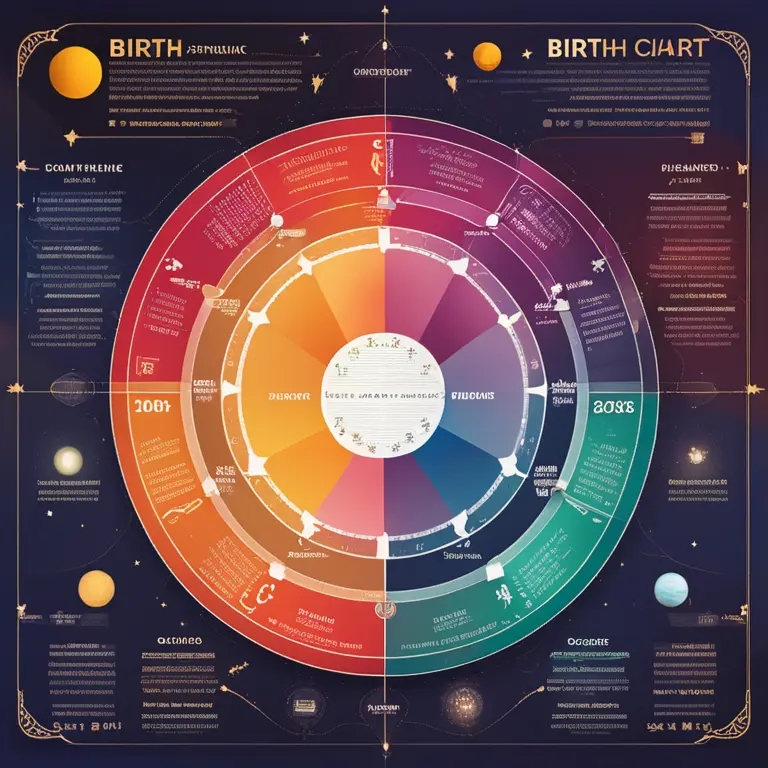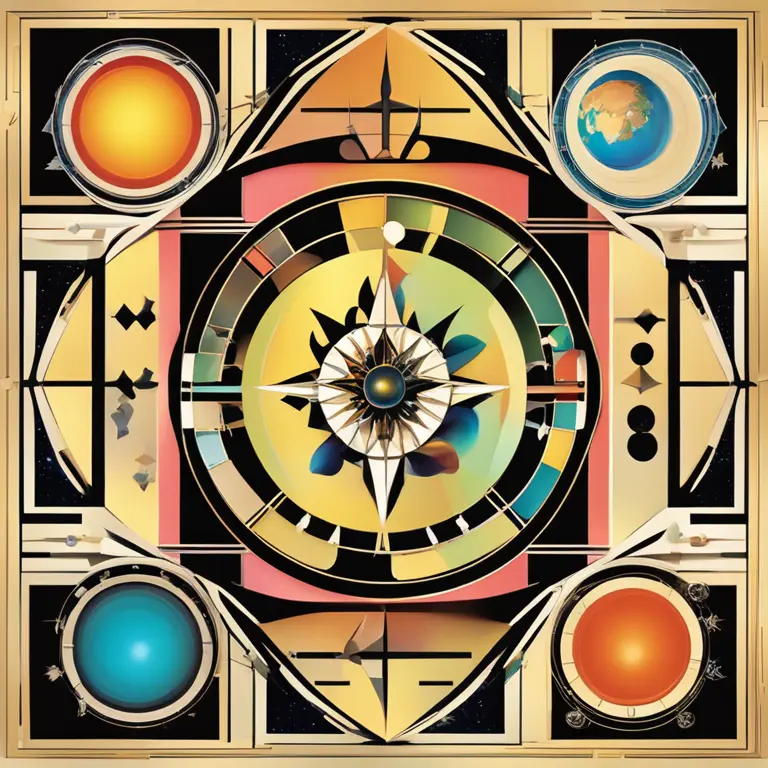
Birth Chart Basics: A Guide to Personal Astrology
Learn the essentials of reading a birth chart and gain insights into your astrological blueprint in this introductory guide.
article by Priya Deshmukh
Introduction to Birth Charts
Birth charts, also known as natal charts, serve as cosmic snapshots of the skies at your exact moment of birth. They offer a profound and personalized look into one's character, potential, and life path. A birth chart is constructed using the date, time, and location of birth, providing a unique celestial map that astrologers believe influences an individual's experiences and traits. In our fast-paced modern world, gaining clarity about oneself is more valuable than ever, and birth charts can be powerful tools for self-discovery and personal growth as we move beyond 2024.

Components of the Birth Chart
The foundation of a birth chart consists of several key astronomical elements: planets, the Sun, the Moon, which represent various aspects of the human experience. The chart is also divided into twelve segments known as houses, each symbolizing different life areas, such as career, family, and relationships. In addition, the zodiac signs in which these planets and luminaries reside add another layer of understanding by bestowing certain traits and energies. The way these factors interact with each other reflects potential strengths, weaknesses, opportunities, and challenges one might face.

Planets and Luminaries
In astrology, planets and luminaries are significant influencers on an individual's life. The Sun sign represents your core identity, the Moon sign your emotional inner world, and Mercury your communication style. Venus governs love and values, while Mars signifies action and desire. The outer planets, Jupiter and Saturn, relate to growth and structure, respectively. Uranus, Neptune, and Pluto are generational planets affecting collective trends but also adding depth to personal transformations, dreams, and long-term shifts in the birth chart.

Understanding the Houses
The houses in a birth chart embody the stage upon which the planets and signs act. The first house begins with the Ascendant, or rising sign, which influences the first impression you make and your approach to new experiences. Subsequent houses cover a range of domains from resources and communication to partnerships, transformations, and spirituality. The activity within these houses—as indicated by their resident planets and the zodiac signs on their cusp—provides insights into where and how life's drama unfolds for you personally.

The Role of Zodiac Signs
Zodiac signs imbue the planets and houses with distinctive qualities. For instance, Aries may introduce assertiveness, while Taurus could suggest a sense of steadfastness. A Gemini influence might encourage adaptability, and Cancer infuses nurturing characteristics. Dive deeper through the entire zodiac to reveal the nuanced interactions that contribute to the complex symphony of your personal astrological narrative as reflected in your birth chart. Understanding these dynamics is essential to interpret how you express these energies in various facets of your life.
Synthesis and Interpretation
Reading a birth chart is an art form that combines knowledge of astrological concepts with intuition. Synthesizing the information, the chart presents requires practice and discernment. Aspects—the angular relationships between planets—also play a crucial role. They can suggest harmony or tension, ease or challenge, in how different parts of your personality come together. As you embark on your journey of astrological exploration, patience and reflection will guide you in unraveling the meanings within your unique cosmic imprint.
Published: 1/22/2024
Modified: 1/22/2024
More predictions
Come back here soon to learn more about yourself and your future


The Lunar Phases of the Moon Explained
Learn how the moon's phases affect us on Earth and influence astrological interpretations through their celestial dance.


Moon Phases & Astrological Affect
Discover how the moon's phases and location impact astrology, affecting personal moods, behaviors, and life events.


Moon Phase Calendar For 2024: A Guide
Dive into the lunar journey of 2024 with our Moon Phase Calendar, guiding your astrology practices and syncing with the celestial rhythms.